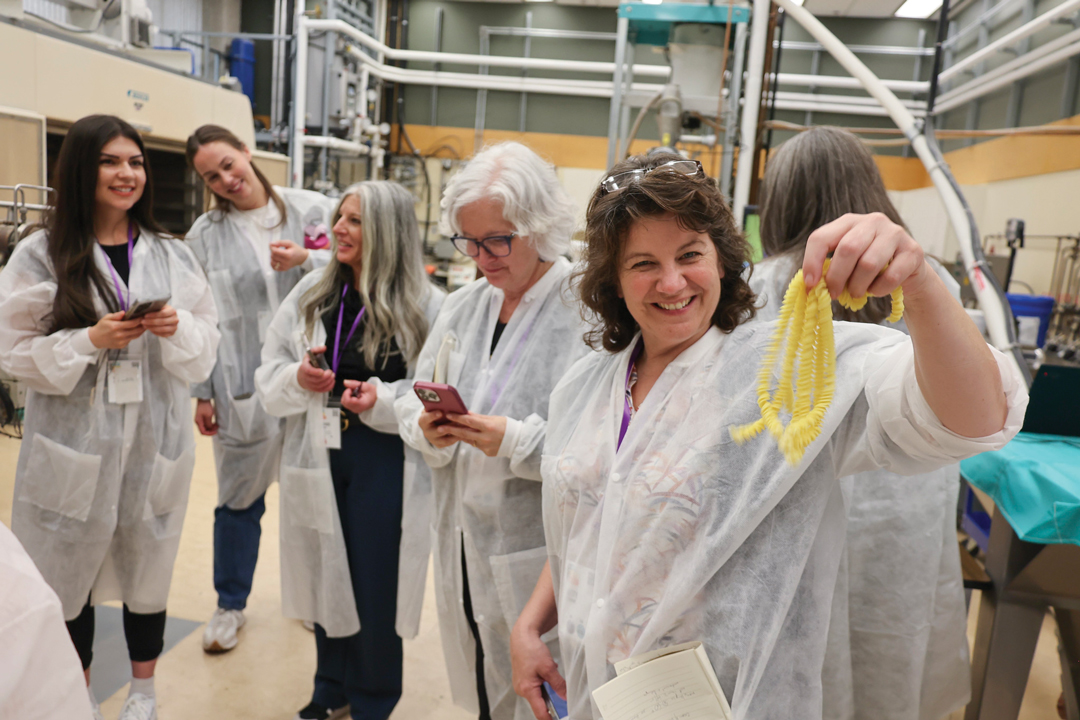ATTACK THE CEREALS KNOWLEDGE GAP
BY ELLEN PRUDEN
Every week, millions of Canadians enjoy their morning toast, lunch wraps and pasta dinners without realizing they’re consuming one of the country’s most exported crops. Canada produces high-quality, nutritious wheat for tables across the globe, yet a surprising disconnect exists at home. While 93 per cent of Canadians regularly consume wheat products, few are aware of the health benefits of this ingredient.
The What About Wheat? campaign aims to close this knowledge gap by informing Canadians about the nutritional content of wheat. A project of the Canadian Wheat Nutrition Initiative (CWNI), its mission is increasingly important as dietary misinformation continues to spread.
Gluten-free trends, fad diets and social media often encourage Canadians to reduce or eliminate wheat-based products from their diets. However, these foods contribute significantly to a healthy diet, and their removal can lead to reduced intake of key nutrients.
Research published in the 2019 Canadian Community Health Survey reveals that nutritional knowledge acts as a buffer against misinformation. The study suggests consumers with a good understanding of nutrition are less likely to fall for misinformation that encourages the elimination of nutrient-dense foods like whole grains.
“We’re seeing a real disconnect between what Canadians are eating and what they understand about those foods,” said Elaine Sopiwnyk, Cereals Canada vice-president of technical services. “Our goal is to provide science-based information that helps people make informed decisions about wheat products that are already part of their daily lives.”
Insights from this research demonstrate that education drives lasting dietary change in the way food trends do not. Most Canadians consume wheat. This suggests there is potential to transform routine consumption into intentional, health-conscious choices.
Because accurate information is critical in the development of healthy habits, What About Wheat? has developed key messages that dietitians and nutrition communicators can use to educate their audiences. These focus on digestive health benefits, plant-based protein content and fibre contributions.
The What About Wheat? initiative recognizes that informed consumers make empowered choices. By ensuring Canadians understand the nutritional value of wheat consumption, the program strengthens individual health outcomes and supports the domestic wheat market.
As part of its programming, What About Wheat? hosted a two-day exclusive retreat at the Cereals Canada Winnipeg facility in May. Wheat Retreat 2025 brought together dietitians, industry professionals and online influencers for an immersive educational experience. Participants discussed the latest research and how to meaningfully connect and engage with their audiences about the nutritional value of wheat.
“The Wheat Retreat format allows us to have deeper conversations with nutrition professionals about the science behind wheat nutrition,” added Sopiwnyk. “When dietitians and communicators have access to credible, research-based information, they can better serve their clients and audiences.”
Through education, collaboration and strategic communication, What About Wheat? works to transform how Canadians think about one of their most consumed foods. Science-based education is essential to improve their understanding of wheat’s nutritional benefits.
Learn more at whataboutwheat.ca.
The CWNI Science Advisory Council is comprised of food and nutrition professionals.
Ellen Pruden is Cereals Canada vice-president of communications and value chain relations.







Comments